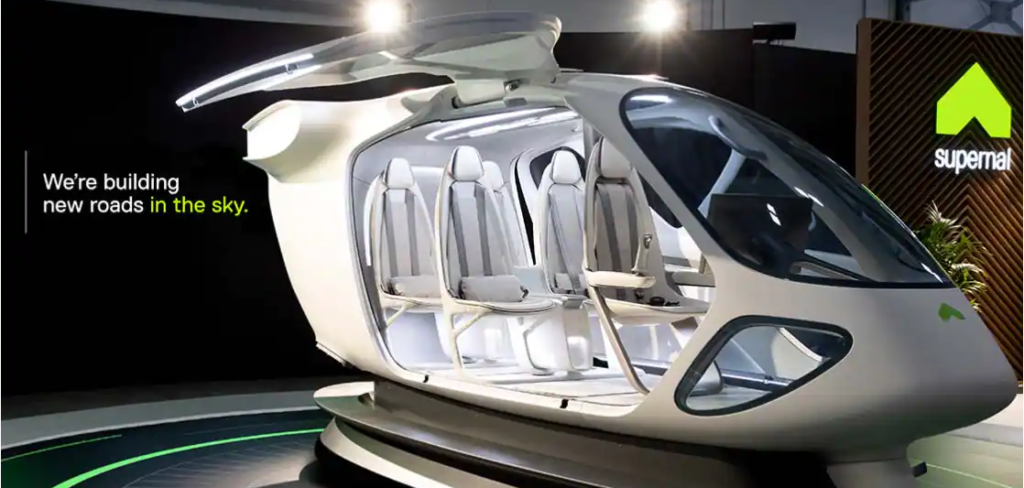Electric aviation startup Supernal has developed an eVTOL vehicle cabin concept in conjunction with Hyundai, which it presented at the recent Farnborough International Airshow in the UK.
Supernal worked with parent company Hyundai Group’s design studios to create the cabin concept. “In order for advanced air mobility to become a widespread mode of transportation, every detail – from the passenger experience to regulations and infrastructure – needs to be addressed from the start and work in lockstep with one another,” said Jaiwon Shin, president of Hyundai Motor Group and CEO of Supernal. “Leveraging Hyundai Motor Group’s mobility capabilities, Supernal is investing time and resources up front to ensure the industry can scale to the masses in the coming decades and reach its exciting potential.”
A team of engineers and designers utilized the automotive industry’s reductive design approach to create the lightweight interior cabin, which is made of forged carbon fiber. Ergonomically contoured seats offer a cocoon-like environment for passengers. Deployable seat consoles mimic automobile center consoles and provide a charging station and stowage compartment for personal items. Grab handles built into the cabin doors and seatbacks assist with ingress and egress. A combination of lighting – including overhead lights inspired by automobile sunroofs – adjusts with the various stages of flight to emulate a ‘light therapy’ effect. The cabin layout draws on automotive space innovation with a minimized bulkhead, which allows for generous headroom and package functionalities.
“The Supernal eVTOL vehicle draws on the competence of the Hyundai Motor Group and the skill set of experienced automotive designers, which allowed us to develop a new air mobility concept that is not only safe and rational but also highly emotional,” added Luc Donckerwolke, chief creative officer of Hyundai Motor Group.
With sustainability as a priority, the cabin concept incorporates materials such as advanced recyclable carbon-fiber-reinforced thermoplastic, durable plant-based leather, recycled plastic fabric and responsibly sourced woods. The seat frame also utilizes excess raw material from the airframe manufacturing process.
“Hyundai Motor Group is working to leverage synergies between automotive’s high-rate manufacturing capabilities and aerospace’s high certification standards to build the foundation for everyday use of passenger and cargo air vehicles,” Shin concluded.



